Indigenous Governance Database
Miriam Jorgensen

Honoring Nations: Miriam Jorgensen: Achieving Good Governance: Cross-Cutting Themes
Miriam Jorgensen, Director of Research for the Native Nations Institute and the Harvard Project on American Indian Economic Development, shares the cross-cutting themes of good governance that exist among the Honoring Nations award-winning programs.
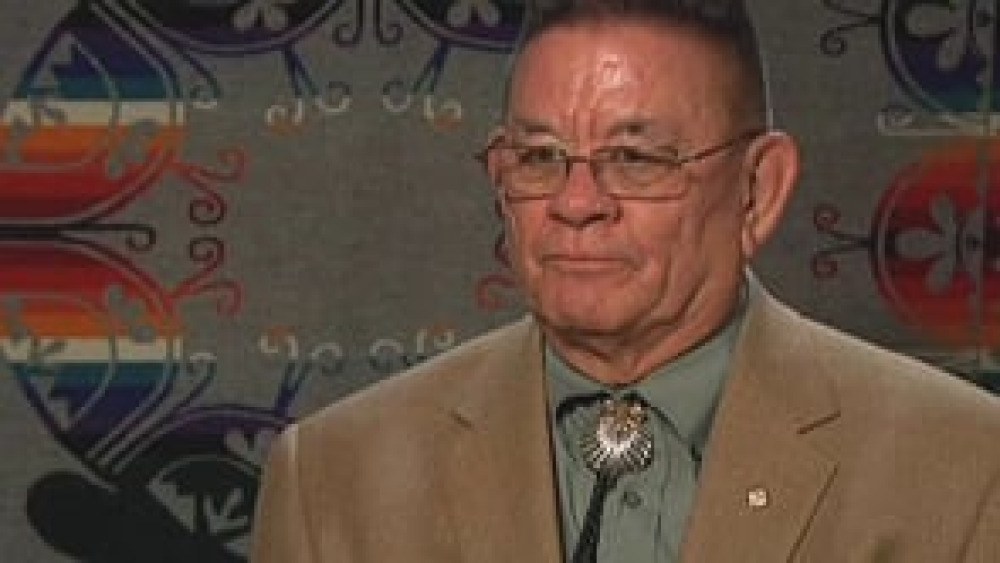
From the Rebuilding Native Nations Course Series: "What Strong, Independent and Legitimate Justice Systems Require"
Native leaders and scholars discuss what Native nations need to do to create strong, independent and culturally legimate justice systems.

From the Rebuilding Native Nations Course Series: "The Politics-Enterprise Balance"
Native leaders and scholars share their thoughts about how Native nations can effectively manage the relationship between their governments and the businesses they own and operate.
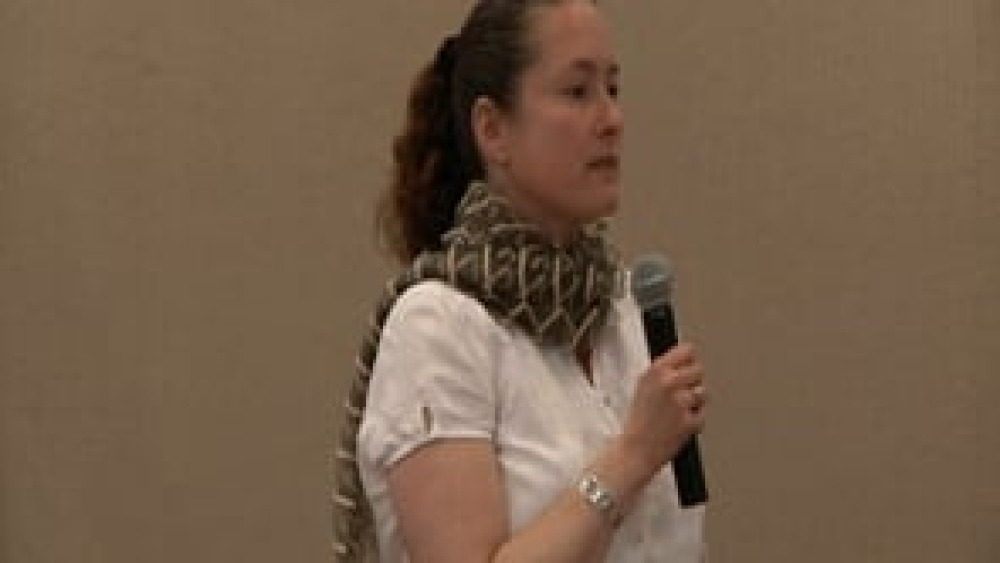
Miriam Jorgensen: Organizing the Reform Process
NNI Director of Research Miriam Jorgensen shares what she sees as some of the critical keys to Native nations' efforts to develop and implement effective constitutional reform processes. This video resource is featured on the Indigenous Governance Database with the permission of the Bush…
Constitutional Reform: A Wrap-Up Discussion (Q&A)
NNI "Tribal Constitutions" seminar presenters, panelists and participants Robert Breaker, Julia Coates, Frank Ettawageshik, Miriam Jorgensen, Gwen Phillips, Ian Record, Melissa L. Tatum and Joan Timeche field questions from the audience about separations of powers, citizenship, blood quantum and…
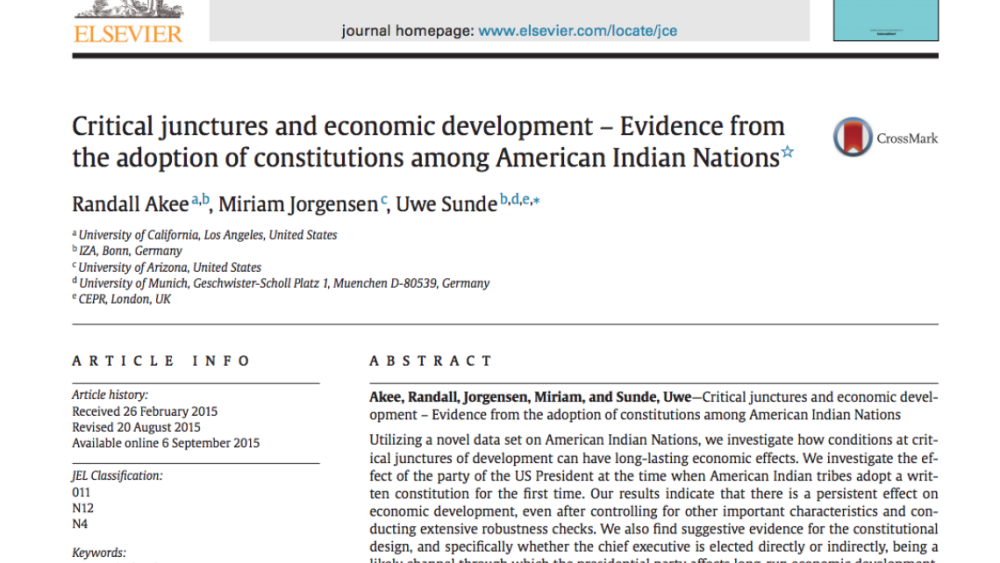
Critical junctures and economic development - evidence from the adoption of constitutions among American Indian nations
Utilizing a novel data set on American Indian Nations, we investigate how conditions at critical junctures of development can have long-lasting economic effects. We investigate the effect of the party of the US President at the time when American Indian tribes adopt a written constitution for the…
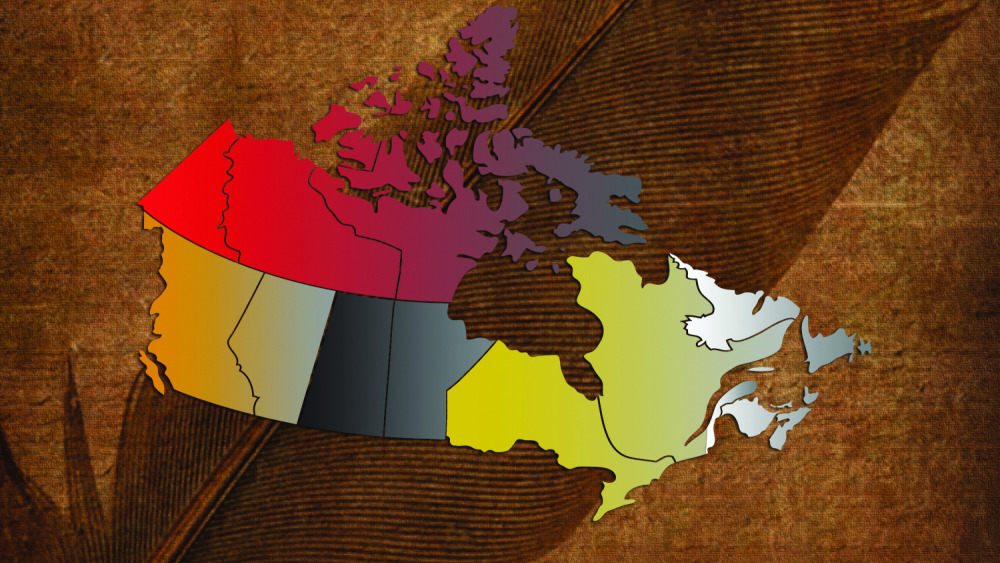
Land and Indigenous Business Development in Canada
Indigenous Business in Canada addresses contemporary concerns and issues in the doing of Aboriginal business in Canada, reveals some of the challenges and diverse approaches to business in indigenous contexts from coast to coast to coast, and demonstrates the direct impact that history and policy,…
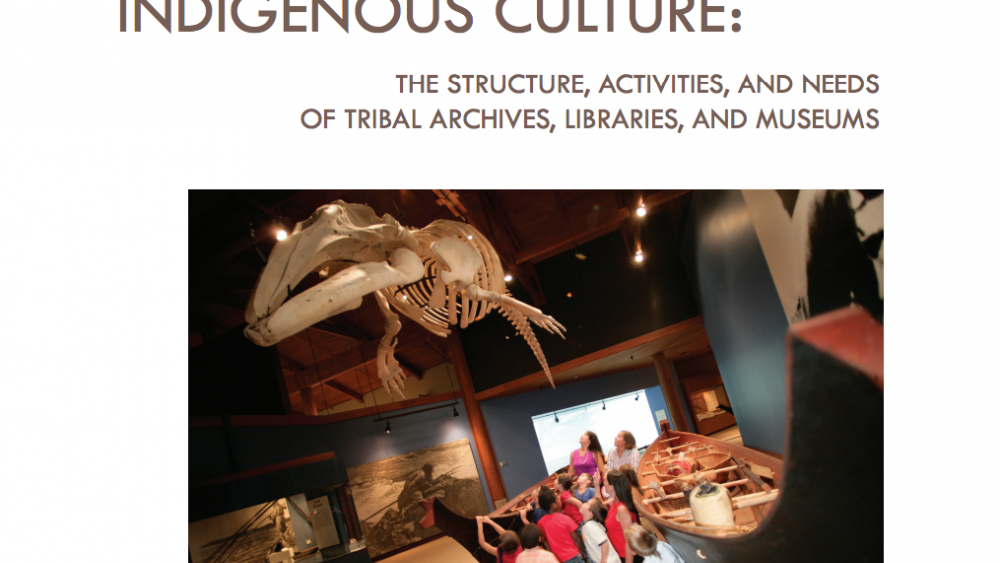
Sustaining Indigenous Culture: The Structure, Activities, and Needs of Tribal Archives, Libraries, and Museums
Sovereignty, self-determination, and self-governance are primary goals of Indigenous nations worldwide and they take important steps toward those goals by renewing control over their stories, documents, and artifacts. To better support it, a core team of Native professionals formed the Association…
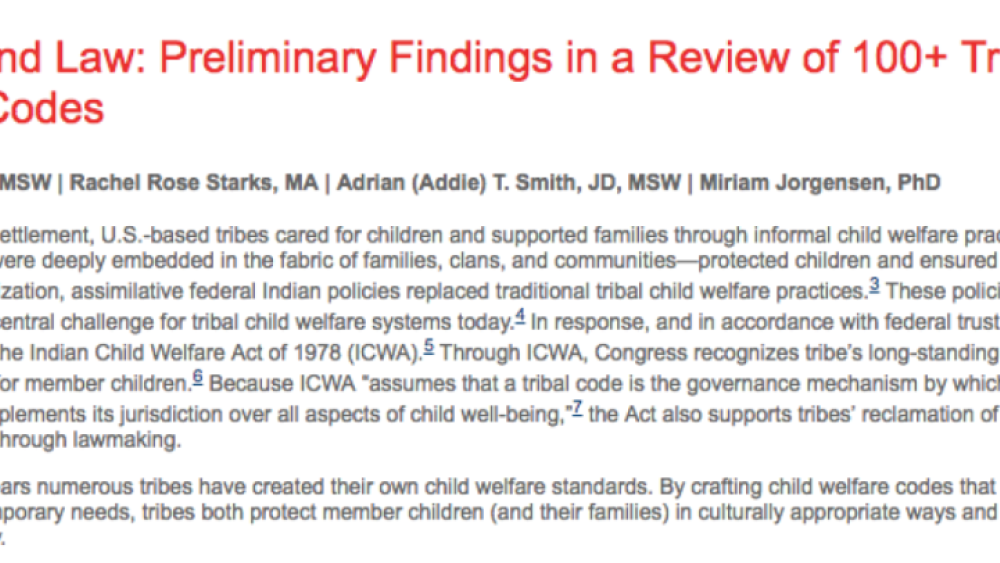
Culture and Law: Preliminary Findings in a Review of 100+ Tribal Welfare Codes
Over the last 35 years numerous tribes have created their own child welfare standards. By crafting child welfare codes that balance traditional culture and contemporary needs, tribes both protect member children (and their families) in culturally appropriate ways and reaffirm their sovereign…
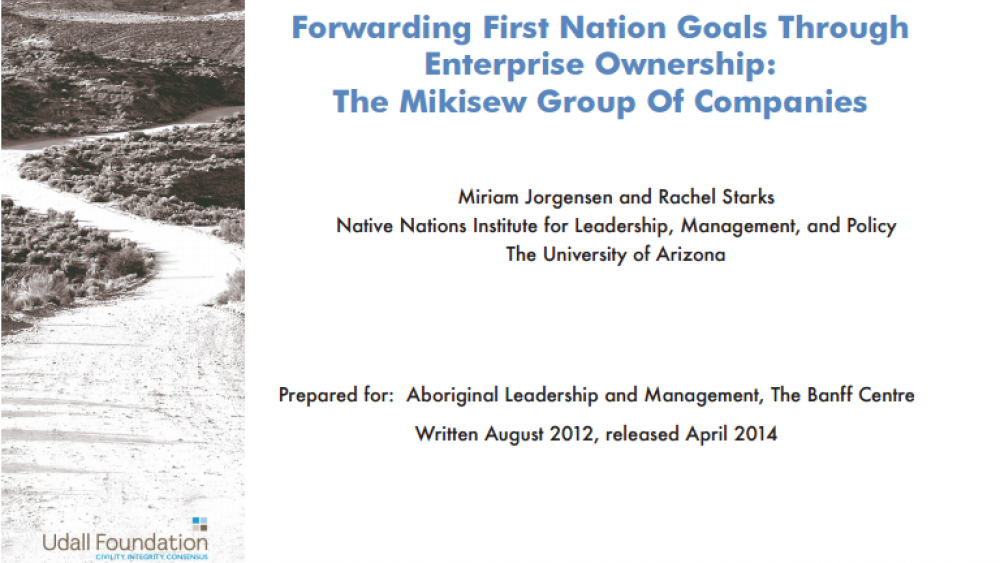
Forwarding First Nation Goals Through Enterprise Ownership: The Mikisew Group Of Companies
The Mikisew Group of Companies (Mikisew Group) is the business arm of the Mikisew Cree First Nation (MCFN). Founded in 1991 using monies from a $26.6 million land claim settlement with the governments of Alberta and Canada, it has achieved remarkable success. This success is evident in the wide…
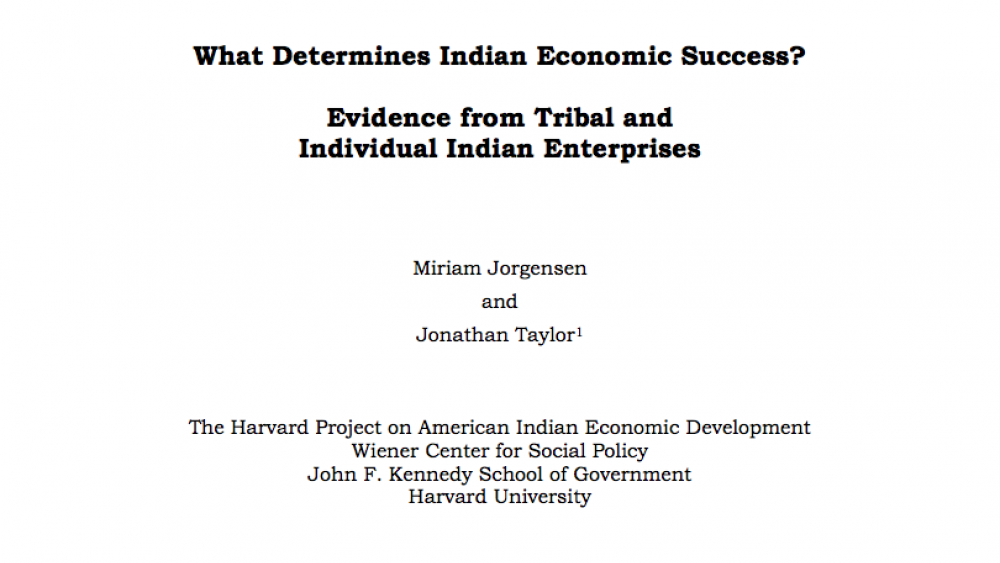
What Determines Indian Economic Success? Evidence from Tribal and Individual Indian Enterprises
Prior analysis of American Indian nations’ unemployment, poverty, and growth rates indicates that poverty in Indian Country is a problem of institutions—particularly political institutions—not a problem of economics per se. Using unique data on Indian-owned enterprises, this paper sheds light…
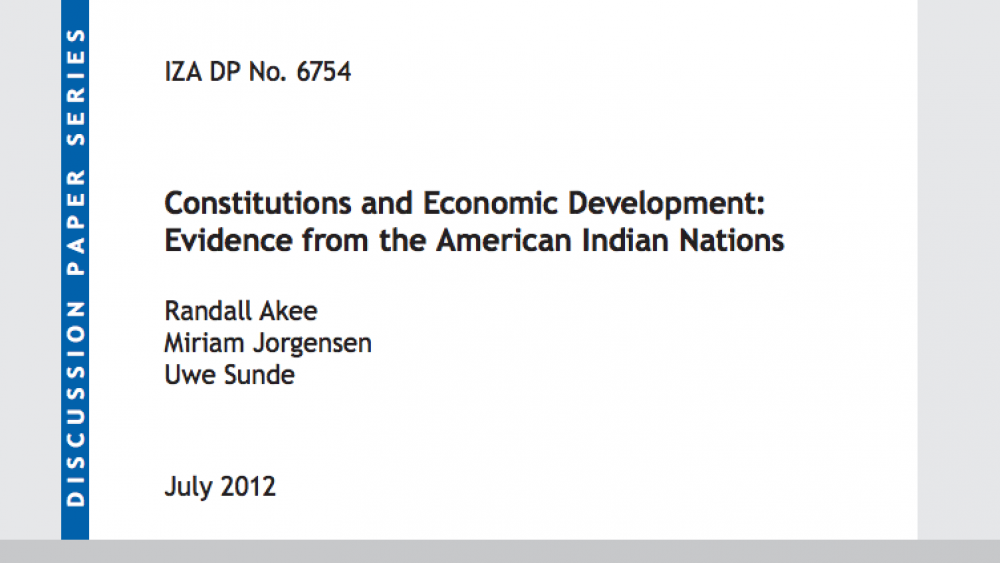
Constitutions and Economic Development: Evidence from the American Indian Nations
This paper presents an empirical examination of economic and institutional development. Utilizing a novel data set on American Indian tribal nations we investigate how constitutional design affects economic development, while holding the broader legal and political environment fixed. Instrumental…
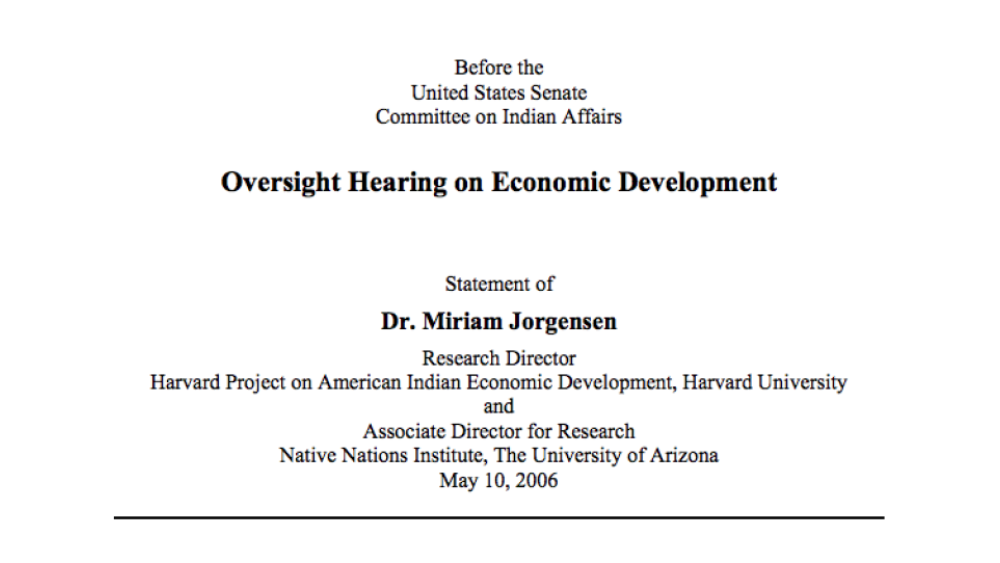
Statement before the United States Senate Committee on Indian Affairs Oversight Hearing on Economic Development
Why is it that, amidst the well-documented and widespread poverty and social distress that characterize American Indian reservations overall, an increasing number of Native nations are breaking old patterns and building economies, social institutions, and political systems that work? What explains…
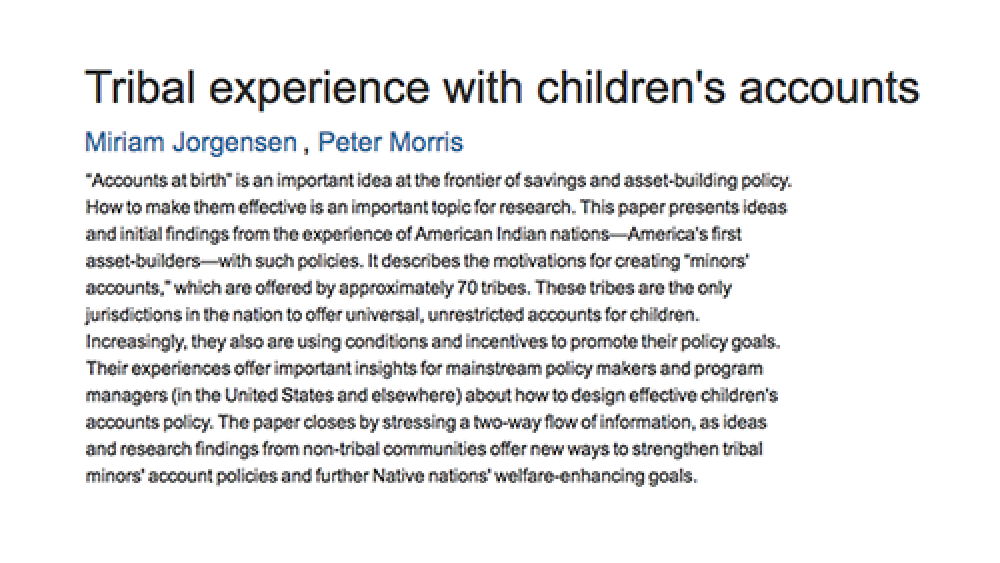
Tribal experience with children's accounts
“Accounts at birth” is an important idea at the frontier of savings and asset-building policy. How to make them effective is an important topic for research. This paper presents ideas and initial findings from the experience of American Indian nations–America's first asset-builders–with such…
